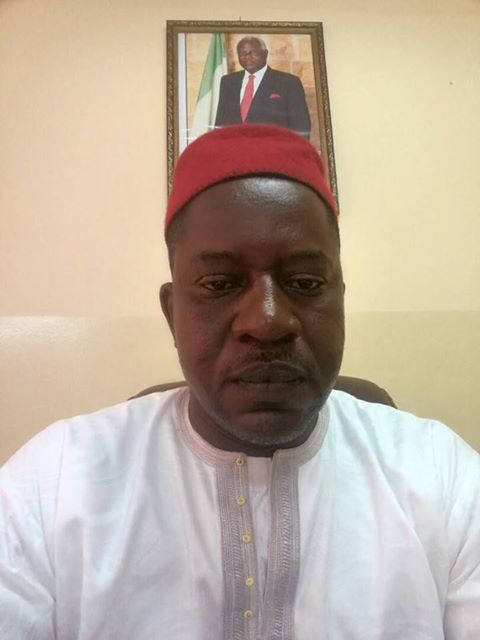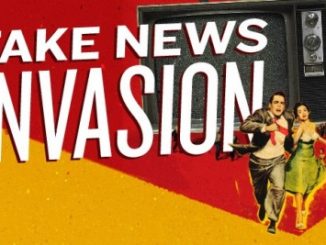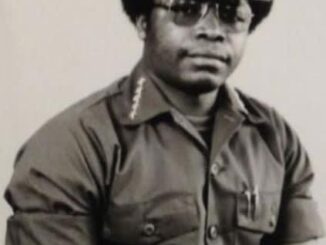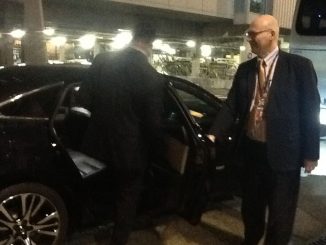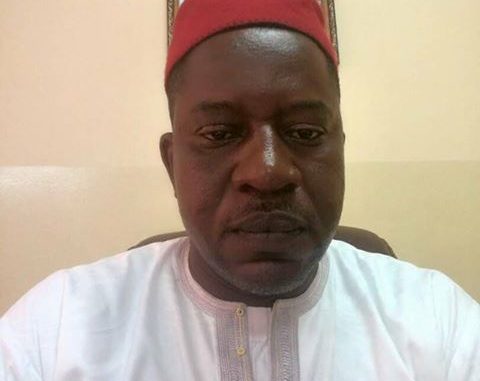
STATEMENT DELIVERED BY THE HONOURABLE DEPUTY MINISTER OF INFORMATION AND COMMUNICATIONS ON WORLD PRESS FREEDOM DAY 2017
Good morning colleagues in the media. I have been here before and I am pleased to be here today and always and to commemorate with you this important day in the calendar of our noble profession.
On behalf of the government and people of Sierra Leone, and particularly on behalf of His Excellency President Dr Ernest Bai Koroma, I wish to congratulate all journalists as we celebrate the 24th edition of World Press Freedom Day today, May 3rd, 2017.
On this day, we reflect on and evaluate press freedom around the world and we reaffirm our commitment to the defense of its independence. It is also a moment set aside to pay tribute to journalists who have lost their lives in the practise of their profession.
The global theme for this year’s celebrations, “Critical Minds for Critical Times: Media’s role in advancing peaceful, just and inclusive societies, could not have been more appropraite.
Resonating with the true spirit of its proclamation in 1993 by the UN General Assembly, which itself follows a Recommendation adopted at the 26th Session of UNESCO’s General Conference in 1991; this year’s theme also caprures the very essence of the African journalists 1991 Windhoek
declaration on media pluralism and independence.
Colleagues all, ladies and gentlemen, in examining the current challenges facing the media, including the continuous trend worldwide of attacks against those who bring journalism to the public; we in
Sierra Leone take comfort from our collective strive to ensure that Sierra Leone continues on its path of a peaceful, just and inclusive society.
There has been tremendous improvement in the media landscape in Sierra Leone.
We have been witnesses to an unprecedented increase in the number of print and electronic media across the country even as innovations in information communication technologies transcend the traditional media as the most prompt and easy to use means of communication.
Mr Chairman, Government remains cognizant of the fact that the right to freedom of expression is a fundamental human right and an embodiment of World Press Freedom Day and we are proud of our impeccable record that no journalist is in jail for expressing their views as per our stipulated regulations.
As a government, we are extremely gratified that the media and civil society now have more space in contrast to what obtained before 2007 when His Excellency Dr Ernest Bai Koroma was first elected to governance. We will continue to espouse the media as partners in development and as the Fourth Estate in the realm of governance.
Mr. Chairman, we recognize that press freedom is enshrined in the laws of Sierra Leone. Section 25 of the 1991 constitution guarantees the protection of freedom of expression and the press. Section 25 (1) reads, Except with his own consent, no person shall be hindered in the enjoyment of his freedom of expression. And for the purpose of this section, the said freedom includes the freedom to hold opinions and to receive and impart ideas and information without interference, freedom from interference with his correspondence, freedom to own, establish and operate any medium for the dissemination of information, ideas and opinions, and academic freedom in institutions of learning.
It further states in sub-section (2) that nothing contained in or done under the authority of any law shall be held to be inconsistent with or in the contravention of the aforesaid provision to the extent that the law in question makes provision a. which is reasonably required
in the interests of defence, public safety, public order, public morality or public health;
or ii. for the purpose of protecting the reputations, rights and freedoms of other persons, preventing the disclosure of information received in confidence, maintaining the authority and independence of the courts, or regulating the telephony, telegraphy, telecommunications, posts, wireless broadcasting, television, public exhibitions or public entertainment; or b. which imposes restrictions on public officers or members of a defence force; and except in so far as that provision or, as the case may be, the thing done under the authority thereof, is shown not to be reasonably justifiable in a democratic society.
Insofar as these rights go with obligations, we are encouraged by the fact that the Independent Media Code of Ethics clearly outlines the parameters within which journalists are expected to carry on with their sacred and constitutional duty in holding government accountable to the people as stipulated in Section of the 1991 constitution.
The Right to Access Information law is also very helpful in granting space to journalists in the exercise of their profession.
As a government, we have during our tenure been confronted with the contentious issue of reviewing part five of the 1965 Public Order Act which criminalizes libel. We have together with media stakeholders held several consultations aimed at doing so and the outcome of the consultations are currently at the law officers department pending legal interpretation and fine tuning.
Mr. Chairman, while this is being pursued, government remains mindful of its responsibility to protect the fundamental rights of every citizen, particularly the reputations, rights and freedoms of other persons and preventing the disclosure of information received in confidence. These are safeguards against blackmail journalism or yellow journalism and against deliberately flouting the IMC Media Code of Ethics.
Examples of such unprofessionalism abound. From receiving brown envelopes to smear the reputation of another persons to presenting inaccurate, imbalanced and incredible reportage the Sierra Leone media landscape has been tainted by the whims and caprices of unscrupulous journalists who most often than not come into conflict with the laws.
As we celebrate World Press Freedom Day, let us celebrate the likes of Bernadette Cole, Christo Johnson, Royston Wright, I. O. Bright, Kelvin Lewis, Ahmed Sahid Nasralla and many more who in pursuit of the exercise of the profession, have consistently and aggressively held government accountable to the people without coming into conflict with the law.
We must not use this day to glamorize the short comings or rather failure of our colleagues whose unprofessionalism has become a stain on our noble calling. We should use this day to extol professionalism and highlight the role of the media in ensuring our progressive transformation and where we should, draw the attention of the authorities on our governance challenges in a balance, respectful and objective fashion.
Mr chairman, as we celebrate a this day, we in government bemoan the poor working conditions and inadequate welfare facilities which grossly inhibit the media’s role in advancing a peaceful, just and inclusive society. Few media institutions have signed up to the minimum wage of five hundred thousand leones.
Well over sixty percent of reporters and editors are paid far less than the minimum wage. In some instances they are not paid at all. The journalist’s Identity card has sadly become a tool of survival. Thus, the age old practice called coasting.
Mr. Chairman, in giving true meaning to this years theme, media owners should not just sign up to the minimum wage, but should also endeavor to pay journalists a living wage and strive to improve the working condition of journalists.
In conclusion, let me thank the Sierra Leone Association of Journalists for this well thought out event and urge SLAJ to be robust in its peer review mechanism in order to high standards as is required by this important profession.
I thank you for your attention


